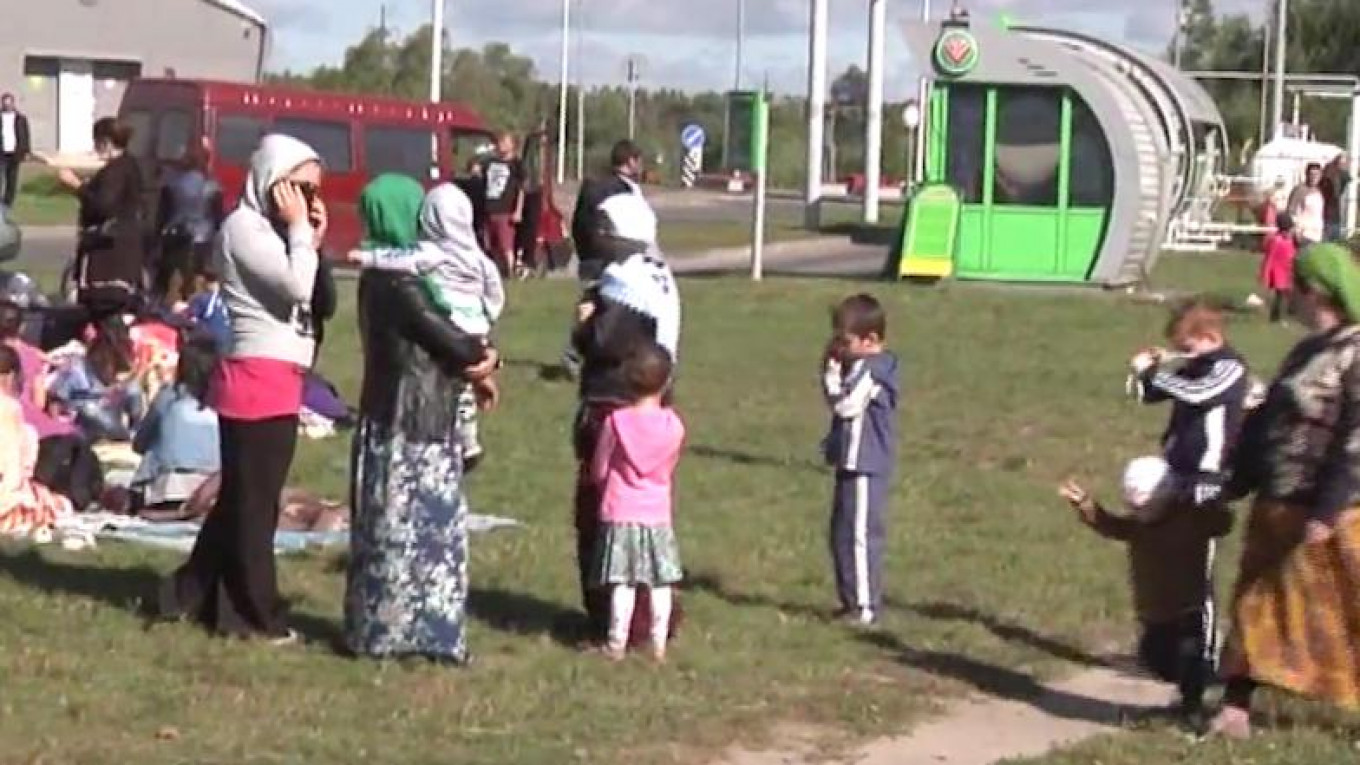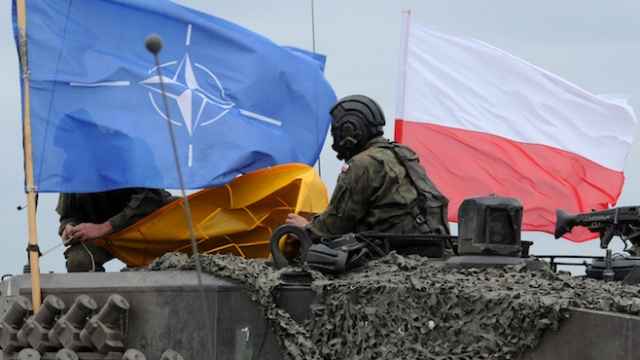As many as a several hundred Chechens fleeing the regime of Ramzan Kadyrov are reported to be trapped on the Polish border in Belarus. Belsat TV, a Belarusian opposition channel based in Warsaw, reported that some refugees had been camping “for
months” after being refused entry to the country.
Poland's Interior Minister Mariusz Błaszczak has already announced that Warsaw has no intention of accepting the refugees. “There is no war in Chechnya, unlike some years ago,” he said.
Błaszczak called the situation “an attempt to open another
route for the influx of Muslims to Europe,” and claimed “as long as
I am interior minister and as long as Law and Justice [Poland's
ruling party] is in power, we will not put Poland in danger of
terrorism.”
Poland's nationalist government has pursued an anti-refugee policy since coming to power in November last year and has faced accusations of xenophobia.
All of those interviewed by Belsat denied coming to
Poland for economic reasons. “There, in Chechnya, there is no way
to live. You have a friend one day and the next he can get abducted,”
said Abdullah, one of the men in the group. “We are telling
them [Polish border guards] why we're leaving but they are not
listening,” said another.
“They are calling us terrorists. What kind of terrorists are we?”
one Chechen woman told Belsat. Another woman told reporters that the
group, including a large number of children, had not received any help
aside from
“the Belarusian Red Cross and Polish and Belarusian drivers.”
The Polish consul in Brest, the Belarusian border city, met with the group and “told them what they needed to do to get a Polish visa,” Poland's Gazeta Wyborcza reported.
“They are Russian citizens. They are currently in Belarus but if they want to get a visa, they need to get one on the territory of the Russian Federation,” said consul Sławomir Misiak. Chechens camping on the border have argued that they are unable to do so. “How can a refugee get a visa? They don't give them to Chechens,” one man told a Belsat journalist.
Polish and international
law guarantees protection to refugees who arrived without the correct
travel documents, said Rafał Kostrzyński, a representative of UN Refugee
Agency in Warsaw office.
“We are concerned by the reports we are reading and by the phone calls we are receiving from the border,” Kostrzyński told Polish TV channel TVN24. “We want to know if all those who need it have access to the asylum procedure and what are the reasons for them being sent back to Belarus.”
Poland has accepted more asylum applications from Chechnya than any other European country since war devastated the region in the 1990s. In 2013 alone, Warsaw received 12,500 asylum applications from the Russian Federation, mostly from Chechnya. The number of Chechens given asylum in the country has since become a popular argument for Law and Justice politicians arguing against accepting Syrians refugees in Poland.
With no end to Kadyrov's uncompromising rule in sight, the number of Chechen applications for asylum is unlikely to dip. According to police, Poland received 6000 applications on the country's eastern border this year alone.
A Message from The Moscow Times:
Dear readers,
We are facing unprecedented challenges. Russia's Prosecutor General's Office has designated The Moscow Times as an "undesirable" organization, criminalizing our work and putting our staff at risk of prosecution. This follows our earlier unjust labeling as a "foreign agent."
These actions are direct attempts to silence independent journalism in Russia. The authorities claim our work "discredits the decisions of the Russian leadership." We see things differently: we strive to provide accurate, unbiased reporting on Russia.
We, the journalists of The Moscow Times, refuse to be silenced. But to continue our work, we need your help.
Your support, no matter how small, makes a world of difference. If you can, please support us monthly starting from just $2. It's quick to set up, and every contribution makes a significant impact.
By supporting The Moscow Times, you're defending open, independent journalism in the face of repression. Thank you for standing with us.
Remind me later.






